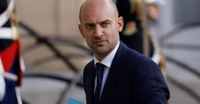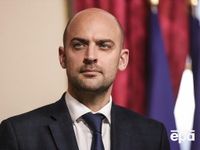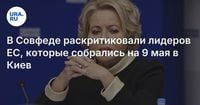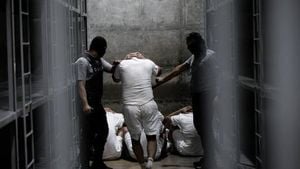On May 9, 2025, European foreign ministers will gather in Kyiv to celebrate Europe Day, a significant event that underscores the ongoing solidarity with Ukraine amidst the backdrop of Russian President Vladimir Putin's grand Victory Day celebrations in Moscow. The announcement was made by Jean-Noel Barrot, the French Minister of Foreign Affairs, during an interview on LCI, where he emphasized his commitment to attending the event.
Barrot stated, "Ministers of foreign affairs of European countries intend to meet in Kyiv on May 9. I will definitely be there," highlighting the importance of this gathering. The meeting is particularly poignant as it coincides with a day that holds deep symbolic meaning for Putin and his regime, marking their celebration of victory over Nazi Germany.
The significance of May 9 is not lost on European leaders, who aim to demonstrate their support for Ukraine on a day that Putin plans to use for nationalistic displays of strength. Barrot pointed out, "On this day, Putin is planning a big celebration in Moscow - this is their Victory Day. For us, however, it will be a moment of solidarity with Ukraine." This statement reflects the broader sentiment among EU nations to stand united against Russian aggression.
In 2023, Ukraine officially designated May 9 as Europe Day, a move that symbolized its commitment to European integration and a departure from Soviet historical narratives. This change was formalized through a decree by President Volodymyr Zelenskyy, marking a significant shift in how the day is commemorated in Ukraine. Previously, May 9 was celebrated as Victory Day over Nazism, following Soviet traditions.
As the date approaches, tensions are palpable regarding participation in the Moscow celebrations. EU representatives, including Kaya Kallas, have warned that any attendance at the Moscow parade will be viewed unfavorably by the European Union. Kallas stated, "Any participation in the parade or celebration on May 9 in Moscow will not be perceived lightly by the European side," stressing that this message extends to EU candidate countries as well.
Despite these warnings, some leaders have expressed intentions to attend the Moscow celebrations. Slovak Prime Minister Robert Fico confirmed, "I will go to the parade in Moscow on May 9," asserting that his decision does not reflect support for Russia. Similarly, Serbian President Aleksandar Vucic announced his plans to attend, disregarding EU cautions about the implications of such visits for candidate nations.
The juxtaposition of the Kyiv meeting and Moscow's celebrations encapsulates the current geopolitical climate in Europe. While European leaders gather in Ukraine to promote unity and celebrate European values, Putin's festivities are likely to reinforce narratives of Russian nationalism and historical pride.
As the conflict in Ukraine continues, the significance of these events on May 9 highlights the contrasting perspectives within Europe. For many EU nations, the gathering in Kyiv represents a commitment to democratic values and support for Ukraine's sovereignty, while the celebrations in Moscow reflect a desire to maintain traditional narratives of victory and power.
The upcoming meeting in Kyiv is not just a diplomatic gesture; it is a powerful statement of solidarity during a time of crisis. As Barrot noted, the visit is an opportunity to underscore the EU's unwavering support for Ukraine. This sentiment is echoed across Europe, where leaders are increasingly vocal about their commitment to standing against Russian aggression.
In conclusion, the events of May 9, 2025, will serve as a pivotal moment in European history, illustrating the deep divides and contrasting ideologies that currently shape the continent. As foreign ministers convene in Kyiv to celebrate Europe Day, the symbolism of their gathering will resonate far beyond the borders of Ukraine, reflecting a collective commitment to peace, democracy, and solidarity in the face of adversity.






